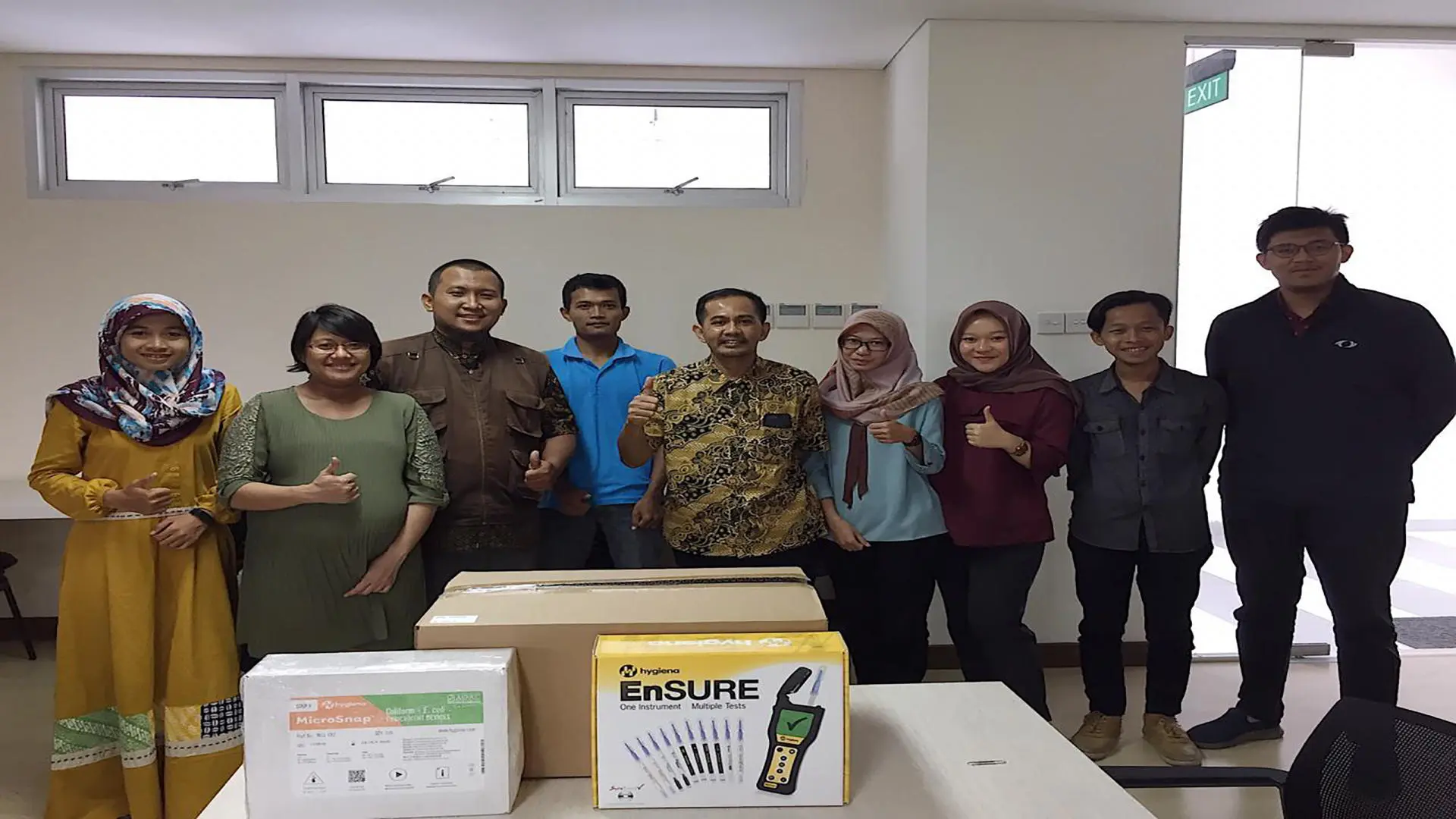Jan Mei Soon, Lecturer in the Health, Social Work and Sport, has worked on a project observing good hygiene practices of ice manufacturers and microbiological analysis of water/ice contact surfaces in Indonesia.
A previous study identified that 91% of ice producers in Indonesia did not comply with sanitation requirements. This increases the risk of cross contamination to food and drink products. Jan Mei Soon has worked collaboratively with local partner Professor Iwan Vanany from ITS Indonesia throughout the research process.
Efforts were made to ensure that the study did not deplete local resources. Study design was co-planned, and an agreement has been made on joint publications and virtual conference presentations. Professor Vanany will be the lead author as the project is led by ITS Indonesia.
The team helped ice producers to identify common sites of contamination and what could be done to reduce microbiological risks. The study identified middle to high-level of hygiene among ice producers. In general, ice manufacturers practised good hygiene, and this helped to reduce contamination during ice production, handling and packaging. A key health benefit is a reduced risk of water and foodborne illnesses among consumers. This also benefits the ice producers, both financially as product recall is reduced, as well as protecting their brand reputation.
The next steps for this research is to tackle water safety challenges for safe food and drink production, with GCRF funding for this has already been secured. This study will proceed with intervention techniques using Ultraviolet-C light, reverse osmosis and ozonation to treat water supplies.
The partners in this project support the policy of reducing gender inequality in research. The project has equal (gender) leadership led by female (UK) and male (Indonesia). The project successfully recruited and trained one female early career researcher and both male and female students. In addition to this, contribution of other female researchers at ITS, Indonesia and female postgraduate students are actively encouraged.

